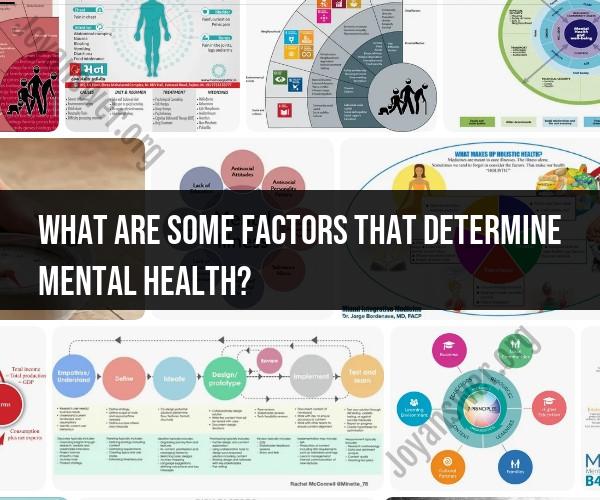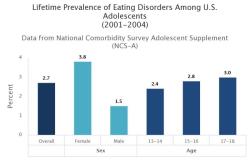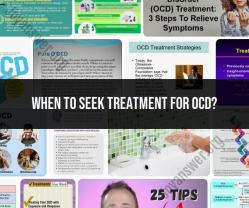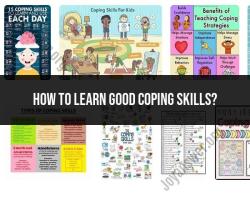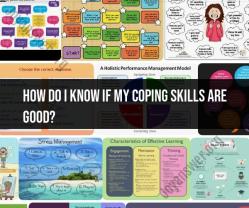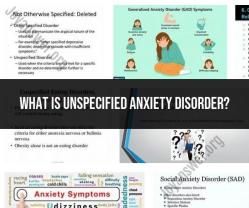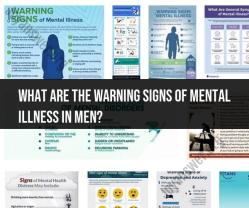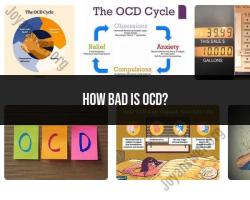What are some factors that determine mental health?
Mental health is influenced by a complex interplay of various factors that can be broadly categorized into biological, psychological, and social factors. Here is a comprehensive overview of the factors that determine mental health:
Biological Factors:
- Genetics: Genetic factors play a role in mental health. Certain genetic predispositions can increase susceptibility to mental disorders.
- Brain Chemistry: Imbalances in neurotransmitters, the brain's chemical messengers, can affect mood, emotions, and behavior.
- Neurobiology: Brain structure and function can impact mental health. Conditions such as traumatic brain injury or neurodegenerative diseases can affect mental well-being.
Psychological Factors:
- Personality: Individual personality traits and characteristics can influence how a person copes with stress and adversity.
- Cognitive Patterns: Thought patterns, cognitive biases, and coping strategies can impact mental health. Negative thinking patterns, such as rumination and catastrophizing, can contribute to mental disorders.
- Emotional Regulation: The ability to manage and regulate emotions is crucial for mental health. Difficulties in emotional regulation can lead to mood disorders.
Social Factors:
- Family Dynamics: Family relationships, support, and upbringing can have a significant impact on mental health. Childhood experiences, including trauma or abuse, can influence future mental well-being.
- Social Support: A strong support system and healthy relationships with friends and family can promote resilience and well-being.
- Socioeconomic Status: Economic and social factors, including access to education, employment, and resources, can affect mental health.
- Stressors: Life stressors, such as financial problems, work-related stress, or major life events, can contribute to mental health challenges.
- Cultural and Societal Influences: Cultural beliefs and societal norms shape our understanding of mental health and influence help-seeking behaviors. Stigma associated with mental health can deter individuals from seeking assistance.
- Discrimination and Prejudice: Experiencing discrimination based on race, ethnicity, gender, sexual orientation, or other factors can have negative effects on mental health.
Physical Health:
- Physical Health Conditions: Chronic physical illnesses, such as diabetes or cardiovascular disease, can impact mental well-being.
- Lifestyle Factors: Diet, exercise, and sleep patterns can influence mental health. A healthy lifestyle can promote emotional well-being.
Environmental Factors:
- Exposure to Toxins: Environmental factors, such as exposure to pollutants or toxins, can have adverse effects on mental health.
- Living Conditions: Poor living conditions, including overcrowding and lack of access to clean water and sanitation, can contribute to stress and mental health challenges.
Trauma and Adversity:
- Trauma: Exposure to trauma, such as physical or sexual abuse, combat experiences, or natural disasters, can lead to post-traumatic stress disorder (PTSD) and other mental health issues.
- Adverse Childhood Experiences (ACEs): Early adverse experiences, including neglect, abuse, or household dysfunction, can have long-lasting effects on mental health.
Access to Mental Health Care:
- Access to Treatment: Access to mental health services, including therapy and medication, is a crucial factor in determining mental health outcomes. Barriers to access can hinder treatment.
Life Events and Transitions:
- Major Life Events: Positive or negative life events, such as marriage, divorce, childbirth, or the death of a loved one, can impact mental health.
- Transitions: Life transitions, such as moving, changing jobs, or retirement, can lead to stress and adjustment challenges.
It's important to recognize that mental health is a dynamic and individualized aspect of well-being. The interplay of these factors can vary from person to person, and individuals may have different levels of resilience and coping mechanisms. Seeking professional help and support, when needed, is vital for addressing mental health challenges and promoting overall well-being.
Factors That Determine Mental Health: A Holistic Perspective
Mental health is a complex state of well-being that encompasses our emotional, psychological, and social functioning. It influences how we think, feel, and behave. Mental health is just as important as physical health, and it can have a significant impact on our overall quality of life.
There are many factors that determine our mental health, including:
- Genetics: Some people are more genetically predisposed to mental health problems than others. For example, if you have a family history of depression, you are more likely to develop depression yourself.
- Environment: Our environment can have a major impact on our mental health. This includes factors such as our childhood experiences, our relationships, our work environment, and the stressors we face in our daily lives.
- Lifestyle: Our lifestyle choices can also affect our mental health. This includes things like our diet, exercise habits, sleep habits, and substance use.
It is important to note that mental health is not a fixed state. It can fluctuate over time, and it can be influenced by many different factors.
The Multifaceted Elements Shaping Mental Well-Being
Mental well-being is a multifaceted concept that encompasses a number of different elements. Some of the key elements of mental well-being include:
- Emotional well-being: This refers to our ability to manage our emotions in a healthy way. It includes being able to experience a range of emotions, both positive and negative, without becoming overwhelmed.
- Psychological well-being: This refers to our overall sense of well-being and satisfaction with life. It includes things like our sense of purpose, our self-esteem, and our ability to cope with stress.
- Social well-being: This refers to our ability to form and maintain healthy relationships with others. It includes feeling connected to our community and having a sense of belonging.
The Intersection of Genetics, Environment, and Lifestyle
Genetics, environment, and lifestyle all play a role in shaping our mental health. These factors interact with each other in complex ways.
For example, if you have a genetic predisposition to depression, you may be more vulnerable to developing depression if you experience a stressful life event, such as the death of a loved one. Conversely, if you have a healthy lifestyle, such as eating a balanced diet and getting regular exercise, you may be able to buffer the effects of stress and reduce your risk of developing mental health problems.
Promoting Mental Health Through Understanding and Support
One of the best ways to promote mental health is to understand the factors that influence it. This includes understanding our own genetic predispositions, our environmental stressors, and our lifestyle choices.
Another important way to promote mental health is to create a supportive environment. This includes having strong social ties, accessing quality mental health care, and advocating for mental health awareness and acceptance.
Stories of Resilience and Recovery in the Realm of Mental Health
There are many stories of resilience and recovery in the realm of mental health. People from all walks of life have overcome mental health challenges and gone on to live happy and fulfilling lives.
These stories are a reminder that mental health problems are not insurmountable. With the right support and treatment, people with mental health problems can recover and thrive.
Here is one example of a story of resilience and recovery:
- J.K. Rowling, the author of the Harry Potter series, has spoken openly about her struggles with depression. She has said that she considered suicide at one point, but that she was able to get help and overcome her depression.
- Rowling's story is an inspiration to many people who are struggling with mental health problems. It shows that it is possible to recover and live a happy and fulfilling life.
If you are struggling with a mental health problem, please know that you are not alone. There are people who care about you and want to help. Please reach out to a trusted friend or family member, or contact a mental health professional for support.
